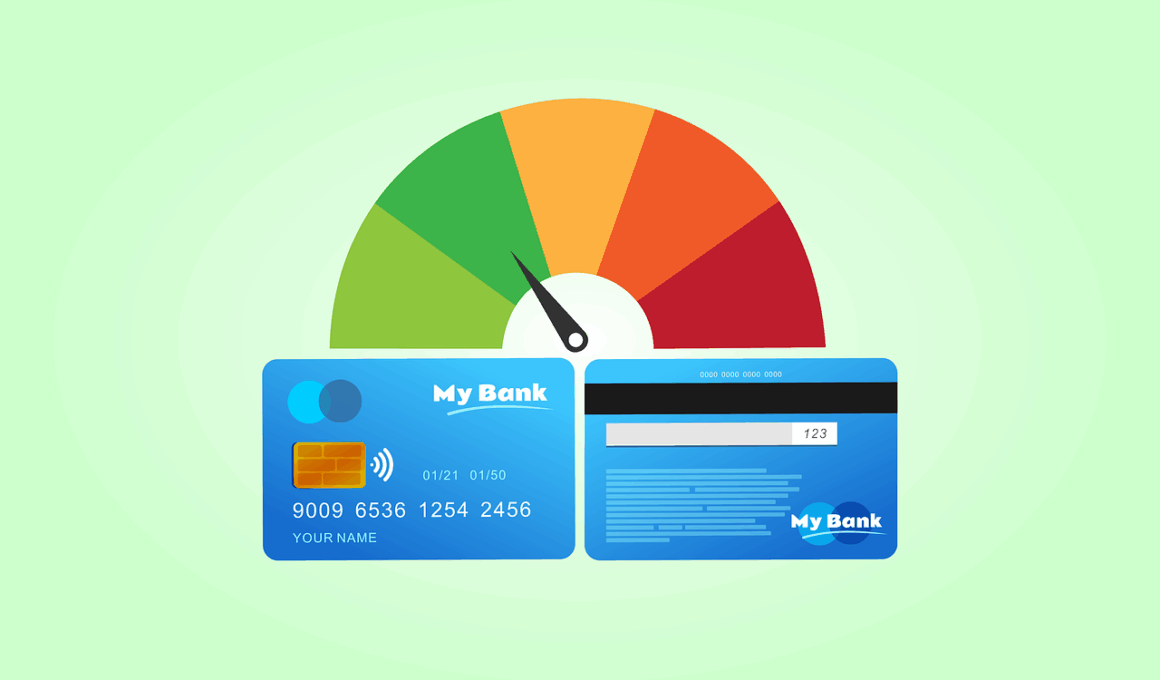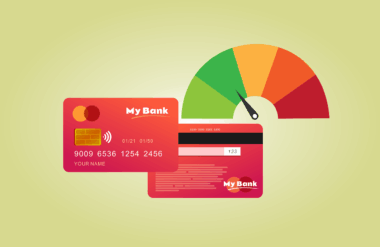How to Use Credit Cards Responsibly in Times of Financial Stress
When facing financial stress, understanding how to manage credit cards is essential. The first step is to assess your current situation. Take a close look at your income versus expenses. This analysis allows for informed decision-making regarding your credit card use. Determine which expenses are non-negotiable and which can be reduced or eliminated. It is crucial to prioritize needs over wants during challenging times. Develop a budget that reflects these priorities, incorporating all necessary expenditures while keeping credit card usage minimal. Track every transaction to ensure adherence to the budget. Consider using budgeting apps to streamline this process. Communication with creditors can also mitigate financial pressure. Discussing payment options can lead to reprieves from interest or fees, affording time to recover. Finally, maintaining a buffer in your credit card balance is wise for unforeseen expenses. Establishing a financial cushion will provide peace of mind. Remember to respect credit limits to avoid penalties. Using credit wisely in stressful times lays a foundation for future financial health, ensuring stability comes when needed most. Stay proactive and informed for best results.
Effective credit card management includes avoiding unnecessary debt during challenging times. Understanding the terms of your credit cards is essential. Review your interest rates, fees, and rewards programs. Knowledge empowers you to make informed choices about which cards to use and when. Additionally, focus on paying more than the minimum payment to decrease overall debt faster. This tactic helps reduce interest accumulation and keeps your credit utilization lower, positively impacting your credit score. Credit scores significantly influence the interest rates you might receive. It’s also wise to select one or two cards to use while minimizing others, as this reduces complexity and potential overspending. When using credit for essential expenses, look for those with rewards that align with your needs. You can earn points or cash back while managing expenses effectively. Consider using balance transfer options for high-interest debt if available. These solutions can reduce your financial burden significantly, enabling better cash flow management during periods of income instability. Always read the fine print involved in such transfers to avoid unexpected fees and penalties. Prioritizing repayment avoids long-term financial trouble, ensuring credit utilization remains manageable.
Establishing Healthy Credit Habits
Establishing healthy credit habits is vital for long-term financial well-being. Start by consistently checking your credit report. Look for inaccuracies and address them promptly, as they can negatively impact your score. Free annual credit reports from each of the three major credit bureaus are available online. Utilize these resources to stay informed about your credit status. Focus on making payments on time, as timely payments account for a significant portion of your credit score. Set up reminders or automate payments to avoid missed deadlines. Creating an organized filing system for bills and statements allows better financial oversight. Furthermore, establishing a designated savings account for emergencies can diminish reliance on credit during tough times. This emergency fund acts as a safety net for unexpected expenses, helping maintain financial equilibrium. Emphasize the importance of not over-utilizing credit, keeping utilization ratios below 30% of your available credit limit. Staying disciplined is crucial during financial stress, ensuring credit cards serve their purpose without leading to unmanageable debt. Encourage open communication with family regarding shared financial goals and credit card use to promote accountability and support in these challenging times.
Using credit cards responsibly also involves strategic thinking about long-term goals. Consider how current financial choices will affect your future. For example, accumulating debt may seem manageable today but can create stress and limitations for tomorrow. Identify your short-term and long-term financial objectives to create a pathway toward achieving them without excessive reliance on credit. This mindset encourages saving and budgeting by giving context to spending decisions. Evaluating large purchases beforehand helps avoid impulse buying, leading to debt. Ask yourself if an item is necessary or if it can wait until funds are more stable. Incorporate a 24-hour rule for significant purchases, allowing time to reconsider spending. It’s also beneficial to engage with financial professionals for tailored advice regarding credit use in times of stress. Their insights might help uncover overlooked options or strategies. Additionally, consider financial literacy courses or workshops to enhance skills and knowledge surrounding credit management. Empowering yourself with information equips you for better decisions now and in the future. The interplay of awareness and proactive behavior leads to sustainable credit habits, ensuring financial health remains paramount.
Resources and Support Networks
Seeking resources and support networks during times of financial stress can make an impactful difference. Financial advisors specialize in providing tailored strategies for credit card management. Many organizations offer free or low-cost financial counseling, which can offer valuable insights. Additionally, various online resources provide educational materials about budgeting, managing debt, and understanding credit. Websites like the Consumer Financial Protection Bureau present a wealth of information tailored to consumers. Peer support can also be beneficial. Consider joining forums or local support groups where individuals share experiences and solutions related to credit management. These communities often help reduce the feeling of isolation during challenging financial moments. Furthermore, empowering oneself through personal finance books or podcasts can provide motivation and new perspectives on credit utilization. Engaging in financial literacy not only provides knowledge but also fosters confidence in making educated decisions. Testimonies from those who have navigated similar challenges add real-life context. Each resource helps to inform decisions, encouraging positive credit behavior during stressful financial periods. Brushing up on these skills prepares you to handle challenges more effectively.
In conclusion, managing credit cards responsibly in times of financial stress requires a multifaceted approach. Start by assessing your expenses and developing a realistic budget. Keep track of every transaction to avoid overspending and maintain control over finances. Avoid making spontaneous purchases, especially decisions involving the credit card. Establish a buffer in your budget for emergency expenses, allowing some financial breathing room. Communicate effectively with creditors to explore options for assistance, understanding that many are willing to work with you during difficult times. Invest time in building credit knowledge to make informed choices regarding credit card usage. Consistent efforts help maintain a healthy credit score and minimize potential impacts of stress on financial decisions. Remember, being proactive is essential. Establish a financial plan that’s adaptable to changing circumstances, which promotes resilience in challenging times. Never underestimate the power of seeking help and gathering knowledge from various resources and support networks. Each actionable step leads to a more stable financial future, ensuring that credit cards serve their intended purpose without becoming a source of distress. Responsible credit card usage allows you to navigate financial challenges effectively, contributing to overall financial wellness.
Final Thoughts on Credit Card Management
Using credit responsibly during times of financial stress involves understanding your financial landscape. It is crucial to recognize stressors that might lead to ill-advised spending behaviors. First and foremost, managing one’s emotional reaction to financial difficulties can drastically alter responses to credit card usage. Aim to educate yourself about potential triggers, whether they be advertising, peer pressure, or personal desires. Developing skills to quell impulsive urges empowers better decision-making during tough times. Additionally, think holistically about financial wellness. Maintain focus on both immediate and long-term financial health. Set financial goals that align with your values and circumstances. This way, each credit card transaction can reflect purpose rather than urgency. Review monthly statements to track and evaluate your financial behavior critically. Consider switching to cards that offer better terms or cashback on everyday purchases, implementing a more strategic approach toward credit usage. Finally, remember that practicing patience, self-discipline, and informed decision-making will pay off in the long run. Mastering credit card management leads to deeper understanding and control over your financial life, particularly during turbulent times, paving the way towards financial recovery.
The journey toward responsible credit card management begins with awareness and education, ensuring that financial stress does not dominate your decision-making process. Utilize available resources and remain open to learning constantly. This proactive approach enables you to navigate challenges and sets a solid foundation for future financial health. Embrace the support networks before you to find strength in community. The importance of asking for assistance cannot be understated, as it makes the pursuit of financial stability less intimidating. Emphasize open communication about financial matters with friends and family. Prioritize mental well-being alongside financial stability, recognizing that stress can lead to poor financial choices. Implementing these strategies will cultivate a healthier relationship with credit over time. This ongoing commitment to responsible credit card practices protects your financial future while ensuring resilience during stressful periods. Every informed decision contributes to sustainable financial stability. Finally, remember to celebrate small successes along your journey. Each step taken toward responsible credit card management forms the building blocks of financial wellness. Reinforce positive habits and progress to motivate continued growth. Practice gratitude for every financial lesson learned, using it as a stepping stone toward a more stable and satisfying financial future.





